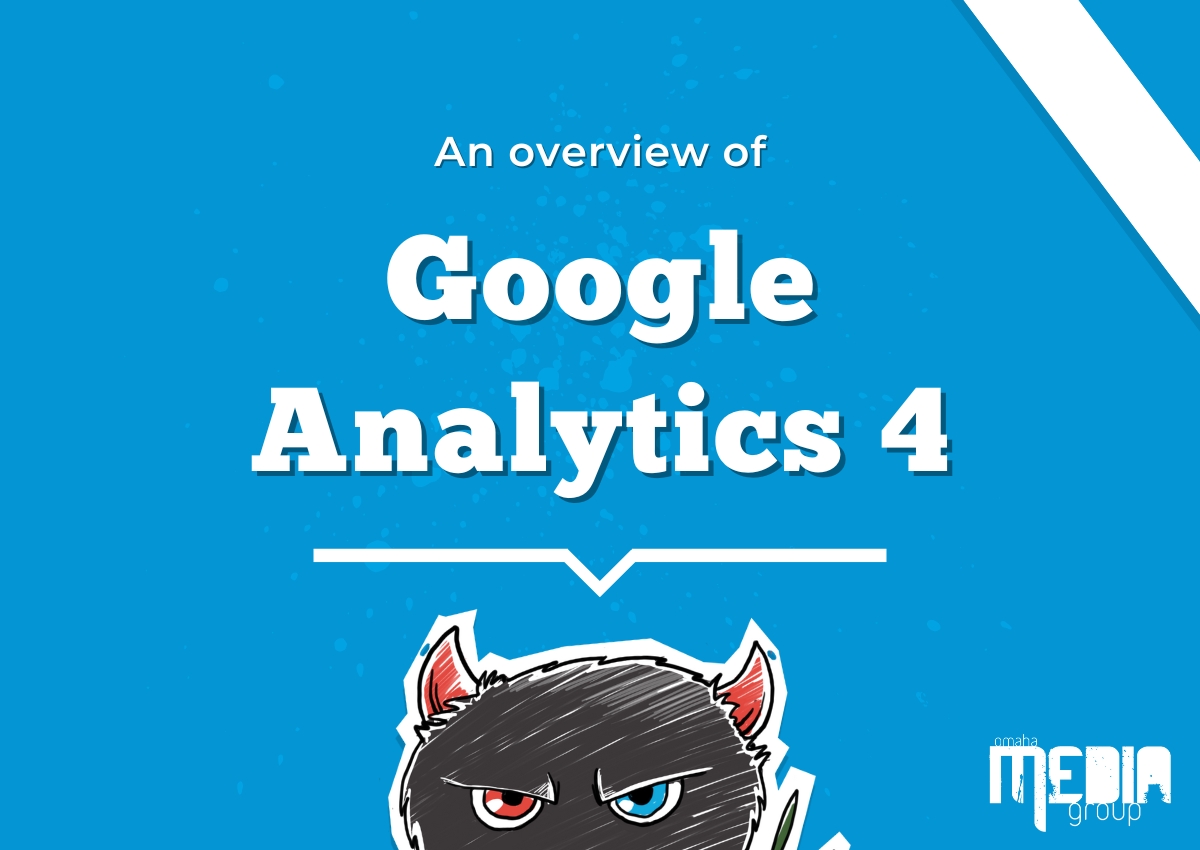An overview of Google Analytics 4
 https://www.omahamediagroup.com/images/uploads/monster_gallery/Omaha-Media-Group-Black.jpg
https://www.omahamediagroup.com/images/uploads/monster_gallery/Omaha-Media-Group-Black.jpg

If you actively check your company’s Google Analytics account, you may have noticed a countdown telling you that the Universal Analytics property will stop processing data starting July 1, 2023, and to migrate your property to Google Analytics 4.
The clock is ticking for those who have not migrated their property to this new version. If you are not sure what this means, no worries. Our Omaha SEO expert team has created this helpful guide to help you figure out what Google Analytics 4 is and how it differs from the previous Google Analytics.
What is Google Analytics 4?
Google Analytics 4 is the latest version of Google's web analytics tool. This newest version is centered around providing website owners and marketers with more information about the entire lifecycle of the customer journey.
It was previously known as the “App + Web” and was introduced to the general public as a beta in October 2020. A reason why Google made this shift is because of their shifts in consumer behavior and changes to online privacy policies.
Another contributing factor to making this shift is the demand for analytic solutions that provide more detailed information about the customer journey.
How does Google Analytics 4 work?
One of the main components of Google Analytics 4 is machine learning software. This software is designed to provide cross-platform insights while also providing a social solution to online privacy policies.
It provides automatic helpful insights to business owners and marketers about your customers across devices and platforms. Some of the new AI capabilities it has are:
-
Automatic alerts to trends
Anticipating customer actions
Predictive metrics
How does Google Analytics 4 differ from the previous Google Analytics?
Google Analytics 4 differs from Universal Analytics in a number of ways. One of the main differences is that Google Analytics 4 operates across all platforms. Universal Analytics was built when most of the online traffic came from desktops. Now, people use different platforms to navigate the web, like mobile devices and apps. Plus, Google Analytics uses an event-based data model to provide user-centric measurement, which means it doesn't rely solely on cookies.
Some other differences between Google Analytics 4 and Universal Analytics are:
-
It focuses on events, rather than page views, which allows for a more comprehensive understanding of user behavior.
It includes enhanced cross-device tracking and machine learning capabilities, which provide more accurate insights into user behavior and allow for more targeted marketing efforts.
It includes a new data model that allows for easier data management and analysis.
It is important to remember that website owners and marketers need to migrate their websites to this new Google Analytics before July 1, 2023. If you do not make the migration, then you will not be able to use your historical data in the future.
Prepare your website for this transition and future changes with an Omaha SEO expert!
Overall, GA4 represents a significant upgrade over Universal Analytics and is a must-have tool for any serious marketer or business owner. If you need assistance managing your company’s analytics and SEO, hire us!


























